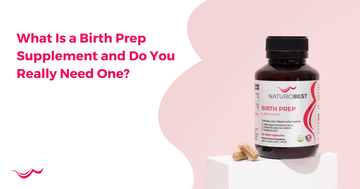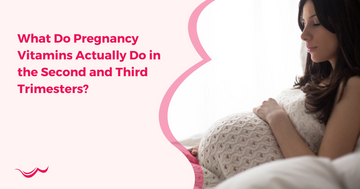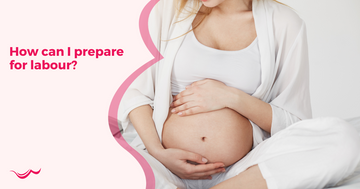Should I Eat Organic Food During Pregnancy?
by NaturoBest Naturopath Team on Feb 01, 2022

You might be wondering - if I’m already taking pregnancy vitamins, do I really need to eat organic produce too? The short answer is: it depends. While a quality prenatal multivitamin can cover many nutrient gaps, the foods you eat carry more impact than you might realise. That’s especially true when it comes to pesticide exposure on fruits and vegetables.
Why Organic Matters During Pregnancy
Research increasingly shows that pesticide residues in conventional produce may interfere with fertility, hormone balance, and pregnancy outcomes. For example, a large observational study of women undergoing fertility treatment found that eating more servings of fruits and vegetables with high pesticide residues was associated with an 18 % lower chance of achieving pregnancy and a 26 % lower chance of a live birth compared to women with lower exposure.
Pesticides can act as endocrine disruptors, these are chemicals that interfere with hormone signalling and may influence both male and female fertility. In men, a review of epidemiological studies observed that exposure to pesticides (especially organophosphates and other commonly used classes) was linked to reduced sperm concentration, motility, and morphology.
So yes, switching to organic produce, especially for the items known to retain more residues, can be a meaningful way to reduce your chemical burden while you’re preparing for or supporting a pregnancy.
How to Go Organic in a Practical Way
You don’t have to convert your entire grocery list overnight. Here are some doable strategies:
- Use the Dirty Dozen / Clean Fifteen guides to prioritise which fruits and veggies to buy organic first.
- Shop local - farmers’ markets and local growers often carry organic or low-spray produce.
- Try organic produce delivery services or mixed “organic boxes” if that’s more convenient.
- Wash all produce, whether organic or conventional. You can use a produce wash or soak in water to reduce surface residues.
- Focus your organic budget on items that are heavily sprayed (e.g. berries, spinach, peppers). For lower-residue items, it may be acceptable to use conventional.
Switching gradually helps to make the transition feel manageable, and investing in cleaner food during such a critical time is a worthwhile step.
Final Thought
Choosing organic where possible helps reduce pesticide exposure and supports a healthier environment for you and your baby. Even small changes, like swapping key items from the Dirty Dozen for organic, can make a meaningful difference. Nourishing your body with clean foods and quality supplements helps give your baby the healthiest start possible.




